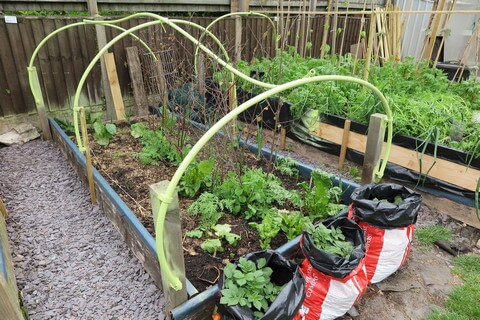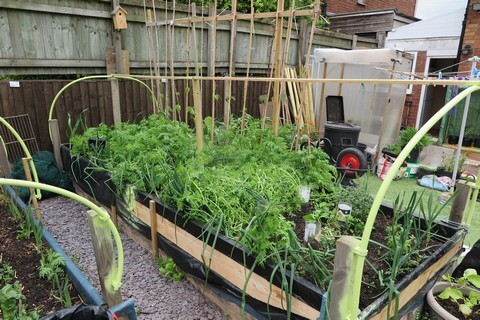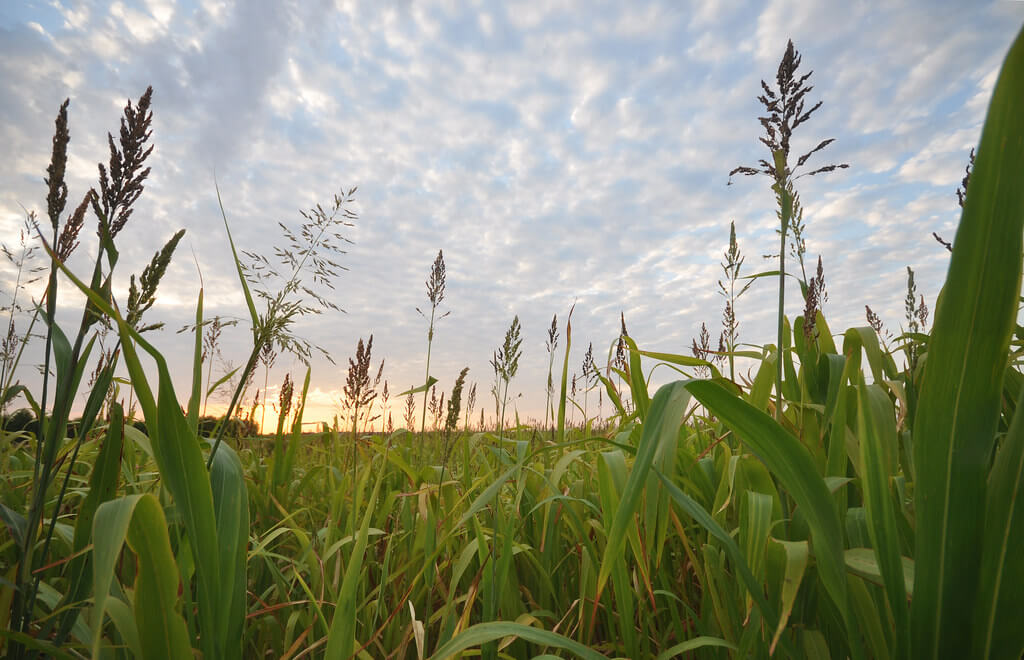Holistic Gardening
By “holistic gardening”, I mean a way of gardening that is inclusive of everything: the soil, the plants, the weather, the water, the air, the pests, the weeds, the tools, the fertiliser and of course the gardener. In fact, the whole of planet Earth is included!
Why This Method?
This way of gardening is carried out while considering the whole ecological system of the planet, hence the word “holistic” which comes from the word “whole”. If that sounds too grand/difficult, please stay with me. In a short space of time, you will find it very easy. In fact it will become easier than “conventional” gardening as there are a lot less things to remember. You will be doing things with nature. So it is less effort because you will be going in the same direction as nature. Doing things this way will improve your plants, the soil, the environment and also you - the gardener.
The side effects of holistic gardening are many:
- Less work is needed in the long-term
- The soil is naturally more fertile
- The beneficial wildlife increases
- Your plants are more healthy
- You are more healthy eating vegetables grown this way
Another term used for this style of gardening is “regenerative”. Although this is normally linked with farming and market gardens. “No dig” is also used in the United Kingdom and “no till” is used in United States.
Finally, this way of tending your garden will focus your mind on the whole ecosystem. This will give you a deep satisfaction that many humans have had since we started growing plants. Being close to the soil and what we eat was embedded into our psyche since we started evolving from just being hunters and gatherers. This was about ten thousand years ago.
Health
Earlier, I hinted at the effects of eating vegetables grown this way on our health. Later on you will find out that the soil is teeming with macro and micro organisms. This method encourages a healthy soil with beneficial “bugs” that will help our plants to thrive. They pull micro-nutrients that are not accessible to the plant root. These nutrients then get into our system as we eat the plants, improving our bodily health. Researchers have found that our immune system is particularly helped by the food we eat. This is particularly pertinent as at the time of writing this, the planet is struggling with a global viral outbreak (May 2020).
Many people have found that being in nature is very relaxing. Gardening of course gets you outdoors and in nature. Many people with mental health issues swear by gardening as a way to get into a better mental state. A well known example is Will Young, who would escape into his gardening to help his anxiety. On top of being active in natural surroundings, the holistic philosophy will add a feel-good factor because you are helping yourself and the planet at the same time.
Principles
There are a few principles to help you start.
1. Do Not Dig — This is so important I cannot emphasize it enough. Treat a soil like a living being. Would you put a spade or fork through another person or a pet? In its natural state, the soil is a living network of organisms that is perfect for plants to grow and thrive in. Digging into it will destroy this environment and cause far reaching problems.
In fact, loosening and improving the soil structure is done by something that is like a micro digger — the wonderful earthworm! It does a much better job than a big clumsy spade or fork. The busy worm leaves these routes in the earth that to plant roots is like what a footpath is to us. The pictures below shows the difference between a dug bed and an un-dug bed. Both had cover crop seeds sown at the same time in early spring. The difference is obvious.


For more details about the soil, please follow the soil.

This will be okay in most cases and no re-growth will occur. If you do get new shoots from the root, just cut it again just below the soil.
When harvesting root vegetables like carrots or parsnips from a no-dig bed, just a slight twist and pull will cleanly bring them up. However if the bed has been dug over before, some digging will be required to get out the produce. But if you just leave the soil un-dug for a season or so, harvesting root vegetables will be much easier.
3. Clothe the Soil — Bare soil is like our body without a protective skin layer. Erosion, nutrient leech and drying out will occur on bare soil. In the larger scale of farming, bare soil has caused desertification of huge tracts of land. Any of these will reduce the soil’s ability to support plants and result in weak growth. Either mulch it with organic matter or use cover crops on it. This will not only feed the soil but any vegetation growing in it will encourage the soil microbiome to multiply. Future crops will get the benefit of stronger growth and be more resilient to pests and pathogens.
For more details about the cover crops, please click here.

4. Feed the Soil — The present belief is that we have to feed the plant. We end up putting N-P-K type fertiliser in the soil for the plant. To a certain extent, this is like saying we humans only need protein, carbs and fat. Yes we can survive on this alone but will not have full health unless we also get vitamins, minerals and antioxidants. In plants, a lot of the minor nutrients can only be absorbed by the roots interacting with the fungi and microorganisms that live in the soil. A “dead” soil means the plant is lacking essential nutrients. So to “feed the soil” means we are feeding the microorganisms who feed the vegetables that in turn feed us.
Nature shows us what the microorganisms need as a feed. On undisturbed land, plants pop up and eventually die and as they decompose, they feed the microbiome. That’s why compost (decomposed plant matter) is so good for the land. Also herbivores grazing on the land will drop manure that are totally consumed by the soil inhabitants too. Commercial fertilisers try to mimic compost and manure but are not as fully complete as the natural stuff.
A little warning here - manure can be dependent on the pasture/feed the livestock grazes on. Some pastures are treated with a selective weed-killer that survives the digestive system of the animal. The manure from these animals will also kill your plants unless they are grass! This is also true of the hay that is gathered from treated land. Look up “aminopyralid” with brand names of Grazon, Banish, Forefront, Halcyon, Pharaoh, Pro-Banish, Runway, Synero, and Upfront.
The post on compost goes in more depth about the above principles.
If ever puzzled or not too sure about what to do in a specific situation, refer back to nature and see how nature deals with it. For example, what would be the best mulch for a fruit tree? Just look at the woodland floor full of shed bark and decomposing twigs and branches. Yes wood and bark chippings would be ideal as a mulch at the base of the tree. Especially if they are fully or partially decomposed (composted).
Disclosure
Although I have been gardening for a few years, I have not used holistic methods until the beginning of this year. However, I have already seen the amazing benefits of this (even so early in the season) that I decided to share the techniques by starting up this site.
This recent adoption also helps me compare the old method with this new way in terms of resulting effects on the plants and the soil. The difference is quite startling and very pleasing as you can see from the photographs above.
Another reason for quickly pushing up this site is because I feel that our health and the health of the planet is very closely linked. By starting on a personal scale on our little patch of the Earth, I expect the message to spread to more and more people. This will have the knock-on effect of us demanding the food we get from supermarkets be of the best nutritious level. Farming techniques will have to change to the regenerative style that is kinder to the planet. We will then be healthier and more able to resist the many diseases that are popping up more frequently.
Affiliate Links
When I find a product that I find useful and works well, I might put an affiliate link to it. What this means is that I get a little reward from the supplier if you use this link to buy the product. The price you pay is the same whether you use the link or go directly to their website.